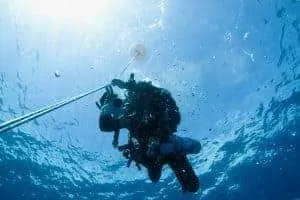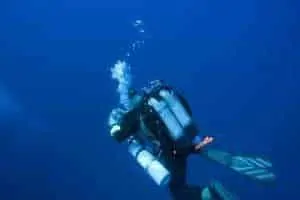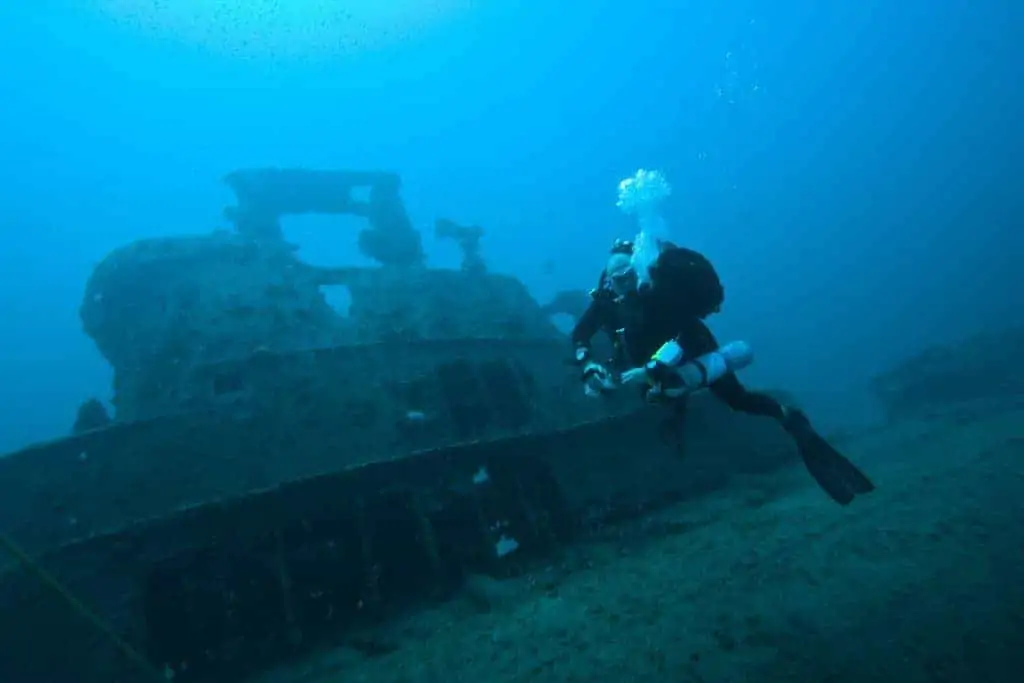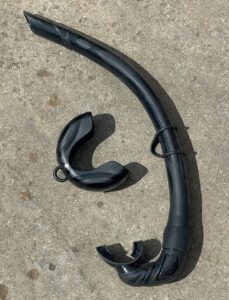Andrew Tonge, deep diver, tech instructor and diving lawyer, takes a look at stress and task loading in diving.
There is no doubt that stress during a dive can be a real problem. Lots of things cause stress, and it's no secret that most of the diver training agencies believe that task loading is a leading cause of diver stress. Unchecked stress can lead to accidents, even fatalities. At its very least, it can be enough to put someone off diving altogether.
We've all heard the term used again and again, but what really is task loading? The phrase is often used to refer to the tasks of the dive – the mission, the larger objectives, such as taking photographs or putting in lines, or carrying out a search – but to limit the definition that way might be to miss the point (and the risks) by a country mile.
At its simplest, task loading is anything that requires a diver to divert his or her attention underwater. Whether that's an instructor trying to keep a group together, a buddy pair hovering while taking photos, or a tech diver switching from travel to back gas, it can come in any form.
What must be remembered is that the very dive itself is, in effect, task loading. From planning and kitting up, entry through to egress, a dive is a series of tasks that require a diver's attention. Of course, some tasks are planned, such as a demonstration of skills by an instructor, or entering the wheelhouse of a wreck, but some are most definitely not – an event may take us by surprise, requiring a contingent task to be performed under emergency circumstances, such as the need to shut down a twinset to prevent gas depletion via a freeflowing regulator.
Planned or not, some degree of concentration and focus is required to carry out all tasks on a dive, even simply remaining aware or regularly checking the contents of cylinders, but let's face it, it's easy to be over-faced. Too much is, well, too much.

The key is to travel light. By that, what I mean is that a diver is well advised to make sure that they can act and react to what the dive throws at them. Don't make the dive difficult. Make it easy.
For example, instead of deciding on a desired task, then pushing it into the dive plan, consider the dive in general and ask whether it's a dive on which you can do such a task. If a task cannot be carried out safely, within the contemplation of what might happen as a result or from left field, then don't do it. If if means that the raison d'etre of the dive is frustrated, tough. Don't do the dive or put in a different objective.
It sounds simple but too often do we see a diver at the water's edge, clipping on another torch, curly cords abound, along with, say, a camera (now with the ubiquitous selfie-style-stick), maybe a slate, an SMB and maybe a wrist mounted compass – forced on over a new dry glove! A good deal of stress is already present (just from the task of adding all that kit) before the diver is even in the water.
Such behaviour often accompanies a poor buddy-check. That usually accompanies poor planning. In the Royal Navy, we had a saying – p@*s–poor preparation produces p@*s–poor performance.
Only if the rest of the dive is well within your diving parameters, and those of your buddy, or group, ought you even to consider taking on that next task.
If it's you that gets tangled in the unclipped spoil line, it'll be your buddies that see it, that get spooked, that try to rescue you, that might botch the rescue, that might also get injured. Task loading and stress travels like wildfire through a group of divers that aren't up to the job.
The stress levels in dealing with essential tasks (such as assisting a buddy) can be difficult enough to handle. The stress levels can increase exponentially when other tasks are added, such as trying to stow that selfie-stick, so you can reach your lpi. These tasks and stress can lead to errors. Those errors might have very heavy consequences.
Problems caused by a selfie-stick or other handheld apparatus, in an emergency, can be easily avoided – unless you are competent in handling diver emergencies, don't take it in.
Some experienced divers apply what's sometimes referred to as error chain logic. For example, a freeflowing regulator on a single cylinder might leave no option but to share air with your buddy. Carrying a redundant bailout cylinder might give the added option of breathing independently of your buddy – essential if your buddy can't be reached. However, this means that the diver has the task of controlling and managing the extra cylinder and regulator.
That ‘extra link' in the chain (the option of independent breathing) might be said to put the diver ‘one link further' from the problem – running out of air – but to err in operating the bailout cylinder (instead of, say, commencing air sharing with a buddy), might put the diver into even more danger. The more links in the chain, the more chance of survival but this also brings more opportunity to make errors.
In deep tech diving it's essential to carry back ups, from gas cylinders to computers and masks, line cutters and spools, but again that brings opportunity for error. The equation has to balance – more options might mean more escape routes, but the task of exercising those options adds to the task loading.
Training and experience are major factors in pushing the outcome of the equation in favour of carrying that extra equipment; having those extra options; putting the diver as far from disaster as can be.

Some years ago, with friend and dive buddy Alan Whitehead of Techwise, Malta, I was aboard a dive boat in the Mediterranean, waiting for slack tide over HMS Stubborn, a World War Two British submarine that lies on the white sand at about 56m. A young tech diver on the boat, who'd travelled from Poland, was kitting up next to us. The boat was full and the water was choppy. This diver stopped his kitting up, unfastened his rig and secured it back to the boat. After a quiet word with his two buddies, he announced to the boat that he wouldn't be diving. He didn't feel up to it.
Admirable. He overrode the all-too-familiar need to save face and sat that one out. He may never know, but his actions have guided me since that day. Before going anywhere near the water, every diver is well advised to sit and think through the dive, from start to finish. This is a common tech-diving technique but applies well to every diver.
Thinking through the dive allows a diver to contemplate, to assess, to consider the tasks that might be required, planned and unplanned.
It lets a diver think through the parts of the dive that he/she looks forward to and, if he/she is honest with him/herself, those that he/she doesn't. It lets the diver decide if changes need to be made to the planned dived. This process is arguably as important as the dive itself. The time to decide on changes to tasks, planned or contingent, is not when the diver is underwater.
If, sitting on the boat, it feels better to make the dive without that camera, say, or in shallower depths, or at another dive site, do exactly that.
If you're stressed on the surface, imagine how much better you'll feel underwater if you unload those tasks.
The underwater world is truly awesome. We divers know that. Being even a metre below the surface is like being on another planet. But the opportunity to dive will still be there tomorrow. Make sure you are.
Andrew Tonge is a technical diver and instructor. He is a lawyer in Manchester where he acts for a number of businesses in the diving and subsea industry. All views are his own.








